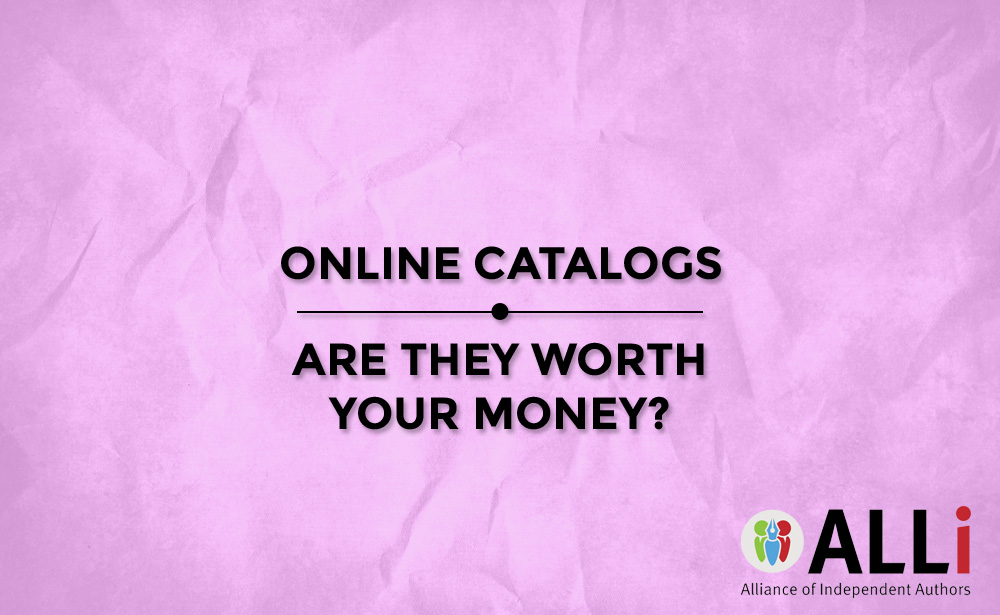You've got a great book. You've got an audience hungering for it. But how do you connect the two?
With nearly 50 million titles for sale on Amazon, and thousands more being added daily, discoverability remains one of the biggest challenges facing any indie author.
That's where ebook discovery services come into play. These can take several forms, but today we're going to look at one of the most common types, the catalog site. Catalog sites display books with links to retailers, usually grouped by genre. Sometimes, these services are coupled with social media or email promotion, but at their heart, most are simply a digital listing of books to browse through. This service may be offered as part of a publishing or marketing package, or sold a la carte.
There are hundreds of these websites available, but are they effective? How can you be sure you're receiving good value for your marketing dollar?
Be skeptical of hype
No online catalog will single-handedly catapult your book to bestseller status. At best, these services can help amplify a larger marketing campaign or add a slow drip of sales to your revenue.
So, when you encounter a site that defies that reality and promises to turn your book into the next blockbuster, don't hesitate to scratch them off your list. They're not being honest with you, as the authors of virtually every book on the site can attest.
Demand quality
A website that looks like it was designed by a precocious pre-teen in 2004 is not going to appeal to today's consumers. Be discriminating, and reject websites that are visually unappealing or that are rife with typographical errors.
If the site doesn't appeal to you, it probably won't entice your readers either.
Consider the company you'll keep
What kind of books will your book be surrounded by on the site? You might think that your professionally designed cover might stand out from the crowd and attract more sales, but the perception of your book is influenced by the books around it.
Think of it as a buffet. If the tables are lined with sumptuous dishes, a customer's reaction will probably be, “Mmm, it all looks so good!”
But if the tables are lined with dishes of cold Spaghetti-O's, overcooked spinach, strangely grey bologna, and what appears to be a dirty diaper, their reaction will not be, “Hmm, what's the least disgusting thing here?” Their reaction will probably be to race for the door.
Find out what you're getting for your investment
How many visitors will see your book? Without hard metrics showing how many people visit a website, you have no way of judging whether the service is worth the fee. The majority of these sites receive little traffic, and even fewer sales.
If the service provider does not willingly disclose that information, or does not have those numbers, be very suspicious. This information is crucial to making an informed decision, and you need to ask yourself why it's not available.
Watch our for providers whose grasp exceeds their reach
Social media promotion is frequently paired with website listings to extend your book's reach. But, as with website metrics, you need to know what kind of exposure you're getting for your fee.
For social media, there are two factors you'll want to look at. First, how many people does the service theoretically reach? Most sites will list the number of Twitter and Facebook followers at their command, but ideally, they'll also link to those profiles so you can verify their follower counts firsthand. Do this.
The second factor is engagement. It sounds great when you say you've got a half million followers, but are those followers actually seeing your content? Are they engaging with it? Are they really bots operating out of a basement somewhere in Albania?
It's not the size of your subscriber base, it's the quality of the engagement. By viewing the social media accounts, you can get an idea of how many people are liking, retweeting, or commenting on posts. If that number is close to zero, there's little chance that these followers are purchasing books. And when your ad comes up, they'll probably scroll right past that as well.
Are ebook discovery websites a waste of money?
If the price is low, engagement is high, and there is evidence of good performance, an ebook discovery site can be a useful tool for your marketing arsenal. However, it's important to keep expectations in check. Passive online catalogs will never replace a comprehensive marketing strategy. But with a little cautious shopping, you can find the right service to boost your exposure and add to your sales.
OVER TO YOU
What ebook discovery sites have you had success with? Let us know in the comments below!





Great post, John! I agree with every thing you said. I’ve found that most sites that offer to “help” you get discovered (even without a fee) are actually building an affiliate marketing option for themselves. The best of them will actually do some promo to a good list to get traffic, which then generates more affiliate marketing dollars. However, most of them are doing the spaghetti-against-the-wall method of adding as many books as possible with the hope that maybe 10% of them will actually get traffic and generate those dollars.